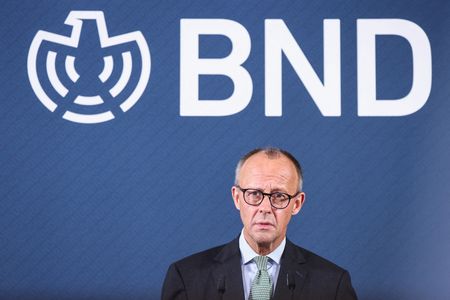By Gram Slattery
WASHINGTON (Reuters) -The parliaments of Lithuania, Latvia, and Estonia are preparing a joint letter asking key committee heads in the U.S. Congress to save a major security assistance program in the face of ongoing Russian threats, according to a draft of the note and two people familiar with the effort.
The bid to salvage the Baltic Security Initiative comes as Eastern Europe and the Baltic states confront increasingly severe threats.
On Wednesday, Poland shot down suspected Russian drones in its airspace with support from its NATO allies, the first time a member of the Western military alliance is known to have fired shots during Russia’s war in Ukraine.
All three Baltic nations share a border with Russia. Lithuania in August wrote to NATO asking it to help strengthen its air defenses, after two military drones crossed into its territory from Belarus, a close Russian ally.
The BSI began in 2020 during Trump’s first term as a response to rising security threats in the region after Russia’s 2014 invasion of Ukraine. The program has recently provided the Baltic nations with around $220 million in security assistance funding, though the amount has varied by year.
But at a meeting with European officials in late August, Pentagon officials said they did not intend to fund the program during the next fiscal year. They also said they planned to eliminate security assistance funds administered by the U.S. European Command area generally, according to European and U.S. officials with knowledge of the meeting.
The Baltic letter, a draft of which was seen by Reuters, asks that Congress pass legislation codifying and funding the BSI, despite the Pentagon’s intention to eliminate the program.
The letter notes that the Baltic countries spend well over the minimum thresholds on defense set by NATO, and that they play a key role in resisting Russian and Belarusian aggression. It also notes the U.S. has a significant Baltic community.
PENTAGON MOVE FACES OPPOSITION
Members of Congress – including some Republican allies of U.S. President Donald Trump – have opposed the Pentagon’s move. Should the BSI be specifically authorized in the annual defense and spending bills working their way through Congress, there could be a standoff, with Pentagon officials refusing to spend the funds.
During the most recent meeting with European officials, Pentagon officials acknowledged that such a scenario could occur and that the outcome would be uncertain, said one person familiar with the meeting.
“In addition to our own defense capability building, this assistance has allowed us to reach our goals more swiftly, as well as to procure American defense systems,” said Sarah Luure, a spokesperson for the Estonian embassy in Washington.
“We are grateful and would like to see Baltic Security Initiative continue.”
The Lithuanian and Latvian embassies did not respond to requests for comment.
The letter should be sent this week, said a source familiar with the matter.
A senior Trump administration official indicated that the White House stood behind the Pentagon’s move to slash the BSI program.
“Europe has been stepping up to take more responsibility for their own defense,” said the senior administration official.
“Many of our European allies are among the world’s wealthiest countries; they are fully capable of funding these programs if they choose.”
(Reporting by Gram Slattery; Additional reporting by Humeyra Pamuk and Patricia Zengerle; Editing by Don Durfee and Rod Nickel)










